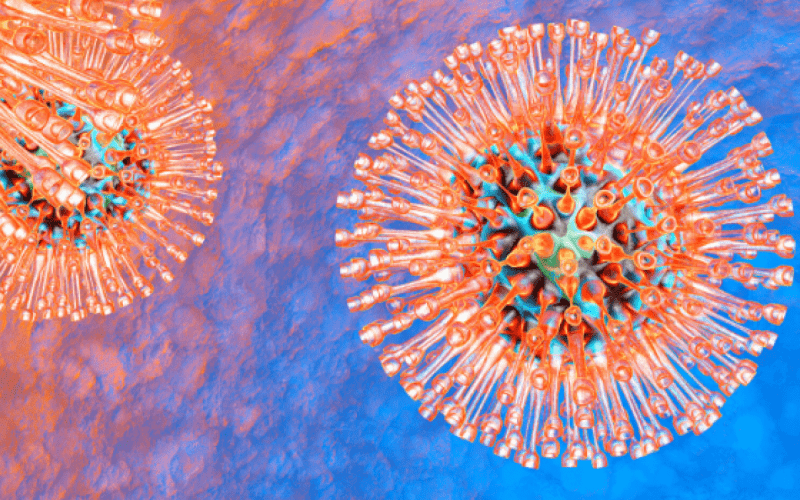Infection with the cytomegalovirus (CMV) appears to play only a minor role in aging of the immune system. To further unravel the relationship between CMV and immune aging, there should be more research leading towards a better understanding of the unique CMV-specific T cell response. This was concluded by Sara van den Berg who defended her PhD thesis in Utrecht November 18, 2020.
Aging of the immune system leads to a less effective immune system in the elderly. Dormant infection with cytomegalovirus (CMV) has been described to accelerate the aging of the immune system. CMV is a common herpes virus that infects the majority of the world’s population (40-90 percent of adults). CMV often remains dormant and asymptomatic for life. However, the means to control CMV in carriers may well take their toll on the immune system. As a result, carriage of CMV could over time lead to exhaustion and reduced function of the immune system. However, the exact mechanism(s) on how CMV may accelerate immunosenescence are largely unclear.
The PhD thesis of Sara van den Berg (Center for Translational Immunology, UMC Utrecht and National Institute for Public Health and the Environment, Bilthoven) investigates the effect of CMV infection on the aging of the immune system, in particular the effect of CMV on the influenza virus-specific immune response, a response that suffers from aging. Sara van den Berg and her colleagues showed that CMV does not adversely affect the immune response to influenza, either after vaccination or after infection.
Sara van den Berg’s PhD research also focused on the effect of CMV on T cells. CMV and aging cause similar changes in T cells. CMV-specific T cells are present in extremely high numbers and appear unique in their appearance. However, the underlying dynamics to preserve the CMV-specific T cells remain unchanged. Moreover, high numbers of CMV-specific T cells are not reached during latent infection, but develop shortly after the first CMV infection. A higher age immediately results in higher numbers of CMV-specific T cells.
Based on the results as presented in this PhD thesis, the investigators argue for a smaller role for CMV in immune system decline than previously thought and make a plea for research leading towards a better understanding of the unique CMV-specific T cell response.
Immunosenescence (immune aging) refers to the gradual deterioration of the immune system brought on by natural aging. The adaptive immune system appears more affected than the innate immune system. It involves both the host’s capacity to respond to infections and the development of long-term immune memory, especially by vaccination. This age-related functional impairment of the immune system is ubiquitous and found in all species. It is therefore considered a major contributory factor to the increased frequency of morbidity and mortality among the elderly.
Sara van den Berg (1990, Velp) defended her PhD thesis on November 18, 2020 at Utrecht University. The title of her thesis was “Impact of cytomegalovirus infection on ageing of the immune system”. Supervisor was prof. dr. Debbie van Baarle (Center for Translational Immunology, UMC Utrecht and National Institute for Public Health and the Environment, Bilthoven). Co-supervisors were dr. José Borghans (Center for Translational Immunology, UMC Utrecht) and dr. Jelle de Wit (National Institute for Public Health and the Environment, Bilthoven). Sara van den Berg works as a biomarker scientist at Janssen Vaccines, part of Johnson and Johnson.
